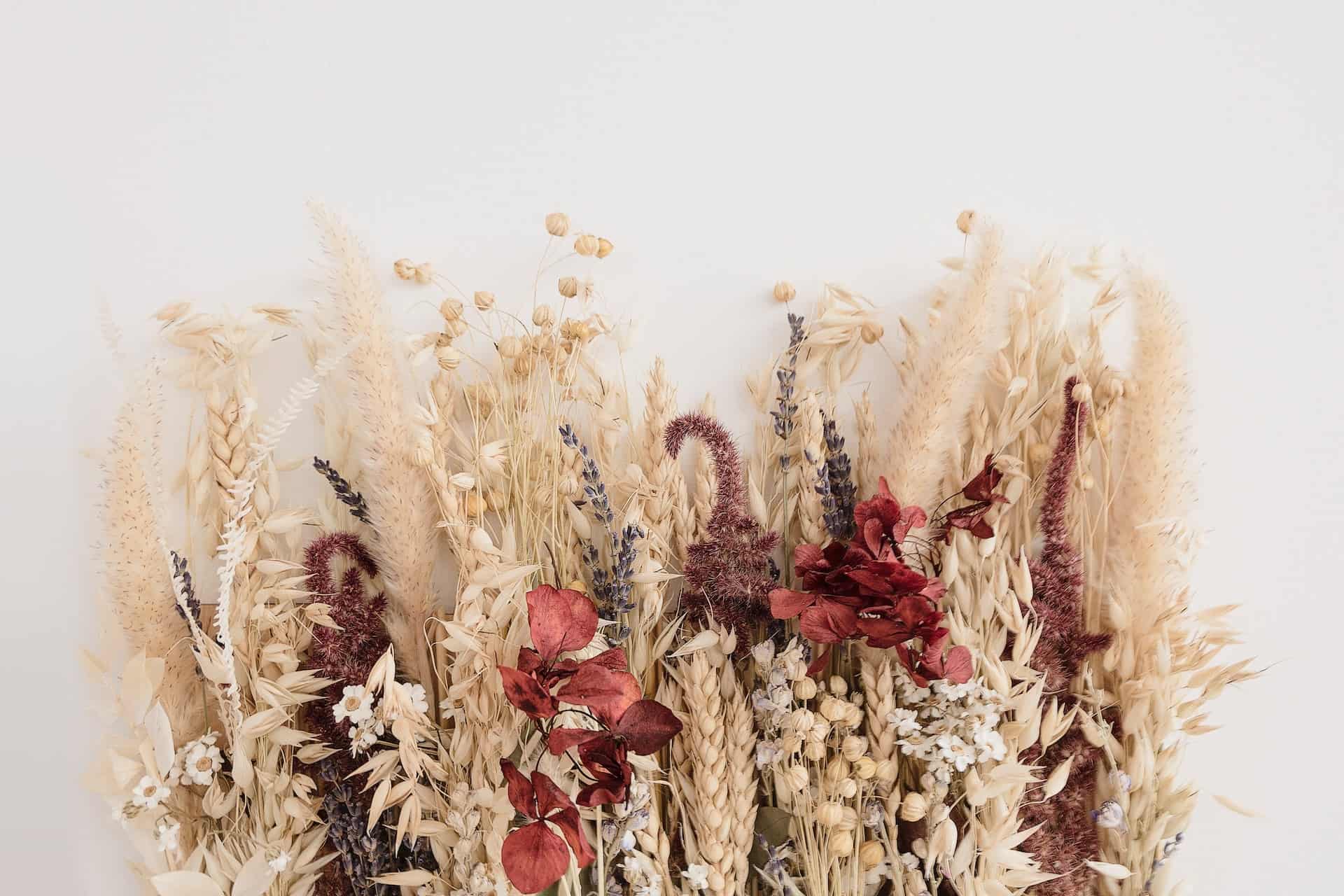
Dried flowers can be a fantastic decoration for the apartment. Especially those that have some meaning to us and remind us of pleasant moments, such as a wedding bouquet. Check out how to properly dry flowers so that they do not lose their shape and color, but please the eyes!
Almost all species of flowers are suitable for drying. However, the methods to be used are different. To make dry plants look really beautiful, do not keep them for too long. Flowers for drying should be healthy, not overripe and not rotten. Only then will they look good after drying.
The method of drying flowers in semolina will be ideal for roses, carnations and other plants with fleshy petals. Just pour a thin layer of semolina into the box and put the flowers on it. Gently cover with another layer and set aside for 2-3 weeks. After this time, the plants should dry out, and their petals will retain their shape and intense color.
The herbarium is certainly associated by some of us with an assignment for a grade in elementary school. It turns out that this method can work well for drying plants. Arrange the flowers individually between pages of newspapers and press them with heavy books. The ink will make the plants dry more easily and keep them in pristine condition.
This method of drying plants used to be used by herbalists. They would tie a bouquet of flowers with thread and hang them in a poorly sunny and dry place with their heads down. It is important that the plants are not wet, such as from rain or dew. However, this method is not suitable for drying leaves, as they look unsightly when dried in this way.
By drying plants on a trellis, we are able to preserve the form of a fresh plant and avoid bud fall. We pin a trellis to the top of the open box and put the flower stems through the holes. In this way we are able to keep the plant upright throughout the drying period. The flowers are beautifully dried after just 3 weeks.
This method resembles the method of drying in semolina. It is ideal for such flowers as dahlias, zinnias and roses. Borax and sand have properties that absorb water from plant tissues, which is why they work so well for drying them. Flowers should be thoroughly covered with a mixture of both substances, so that the powder gets even between the petals. The effect will be visible after 2-3 weeks.
Glycerine will be ideal when you want to dry the twigs of fruiting bodies, such as rowan trees or shrubs with green leaves. This method can also be used when drying moluccella flowers. Start the whole process by thoroughly cleaning the plant from dirt and removing damaged parts. In a pot we prepare a solution of glycerin and warm water in a ratio of 1:2. Stems are immersed in the vessel to a depth of about 10 cm. The drying process takes about 10 days – then the whole plant will fill with liquid. When the process is complete, dry it on a newspaper. The flower will be flexible and resistant to mechanical damage.
main photo: unsplash.com/Katsia Jazwinska